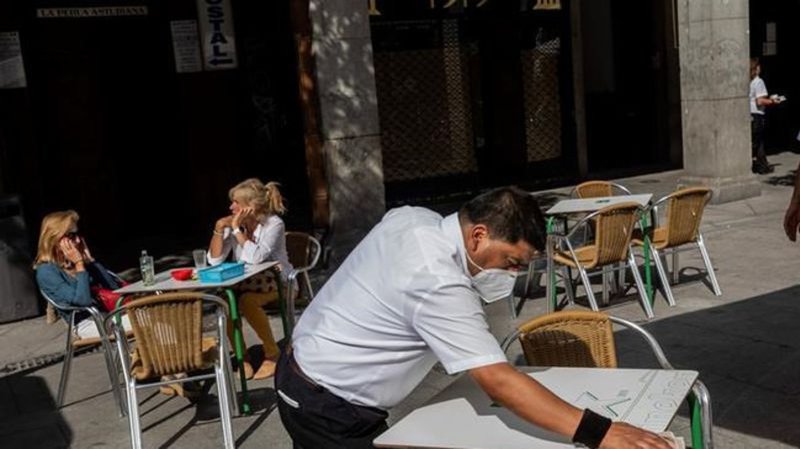
Political dispute deepens over anti-outbreak plan for Madrid
MADRID — The government of Madrid, the region in Europe where a second coronavirus wave is expanding at the fastest rate, rejected a Spanish government plan Wednesday that imposes stricter mobility curbs and limits on social gatherings in the capital and its suburbs, deepening a domestic confrontation over the response to the pandemic.
Madrid’s refusal to adopt national standards approved by 13 of Spain’s 19 regions and autonomous cities represented a new setback for Prime Minister Pedro Sánchez’s left-wing coalition, which is trying to push for a stricter response in the opposition-ruled Spanish capital.
The deadlock also exposed some of the pitfalls of the country’s highly decentralized political system, irritating many Spaniards and undermining their trust in politicians’ handling of a worrying surge in virus cases more than six months after the pandemic first overwhelmed Spain.
Madrid is leading the resurgence of the virus in Spain and Europe. The region has a two-week infection rate of 784 cases per 100,000 residents, which is 2 1/2 times higher than the national average of 294 cases and seven times higher the average rate in Europe, which stood at 94 per 100,000 residents last week, according to EU statistics.
